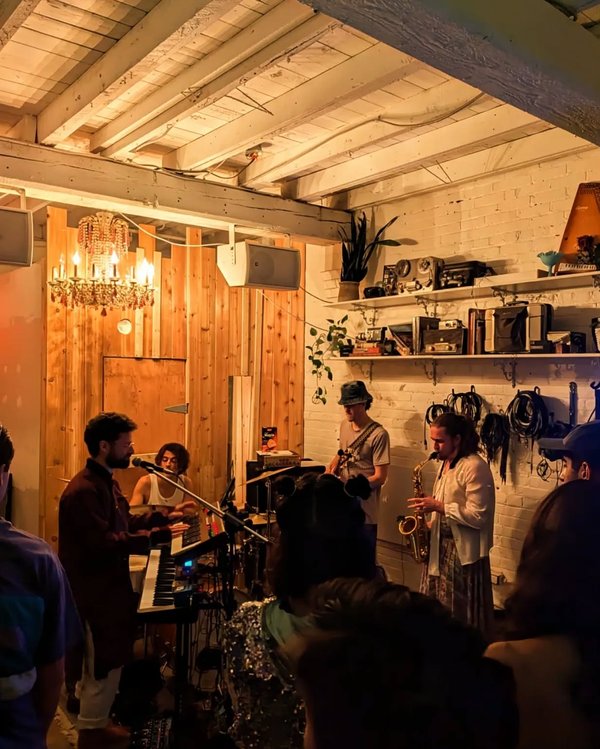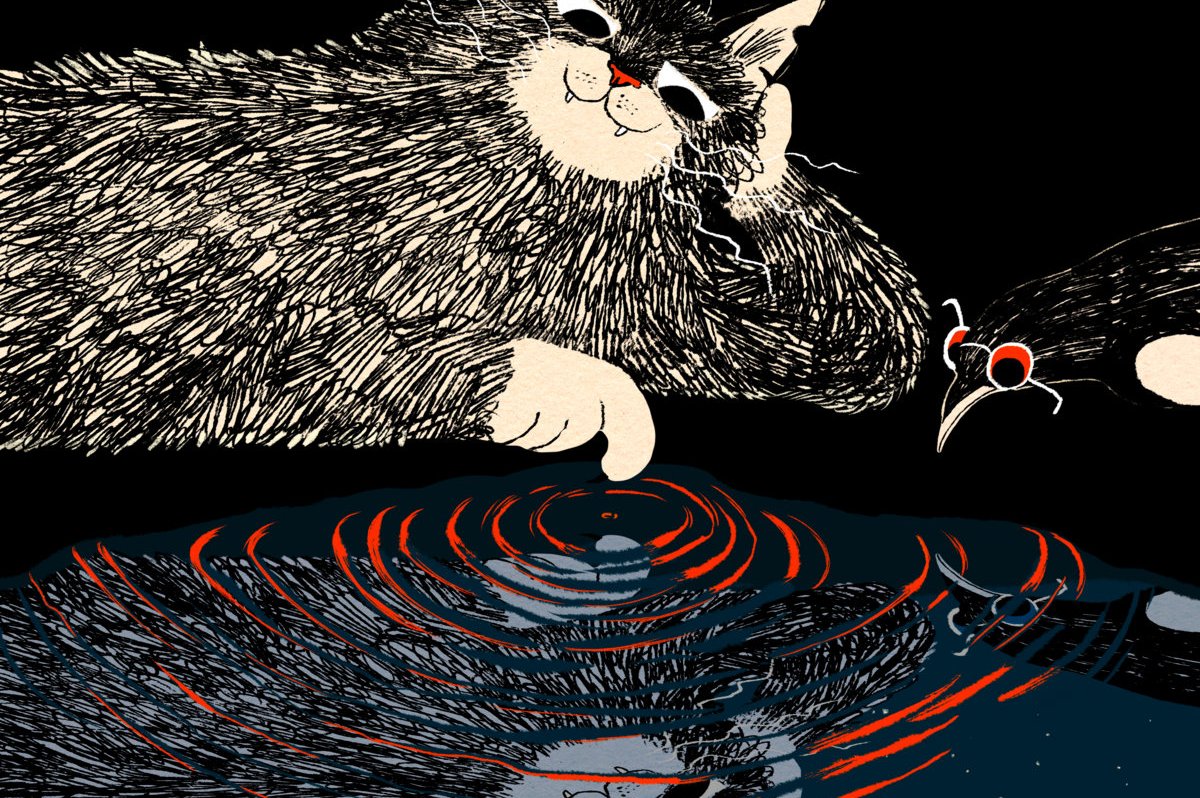Magpie is the self-described jam jazz project of Lucas Finkeldey, Martin Camara, Adrian Humphry, and Enzo Arpino. We discussed the history of the band, their writing process, and their EP Stray.
How did the band form?
Lucas: The simple story is: we are all graduates of U of T engineering, and all of us were part of different disciplines at U of T at different times. But the engineering program has, you know, various clubs and one of those clubs was the music program. The music club for engineers was actually pretty big and all of us, you know, upon joining at U of T joined the the skill music club, particularly in the jazz program. And at the time there was something called jazz combo, which was a smaller like four piece, five piece combo. The whole point of that was to play at different events posted within the engineering program or even outside of that too. And then like fast forwarding through that whole process, the first time we actually played together was like a work event for me, like my workplace event.
Adrian: Yeah, it was a bit of an age difference between us. Lucas was the eldest, and he was running the combo and then he like handed it down to me. And then I led the combo for a bit and then I handed it off.

From Left: Lucas Finkeldey, Martin Camara, Enzo Arpino, Adrian Humphry.
Okay, cool. So you all met through playing in a jazz combo at the university. Did you always keep that connection? Or did it stop for a while, and then later you got back to playing together?
Lucas: That was kind of a chance thing where we all played together, because there's so many players, and at different stages. And I think, when we started doing this kind of stuff was like two years ago? We decided to start playing shows together but there was a pretty big gap. I graduated U of T in 2017, which is around the time that we did that gig, and then fucked off and started doing other stuff. You guys were finding your way through school.
Marty: I would actually say what rekindled my music relationship with Lucas was, we had an end of year concert for this school stage band when I was leading it, and our piano player at the time couldn't make the concert. So we invited Lucas and we had a freaking blast. We had such a sick show.
Adrian: Really good. I was in the audience.
Marty: So at that point it was like, “oh, there's maybe something here” and that was when we also started going to TO lounge. And just playing more often, and seeing each other more often. And at one point – I'm not sure who kind of like initiated the idea of playing together more often, maybe it was Lucas, I honestly don't remember – but we just started jamming more together.
What was the writing process like?
Lucas: I feel like the writing process is kind of taking stuff that I had written, or like demos I had recorded from over the course of a few years, and as a band I was like, “have a listen to these,” and, “how do we do that with the composition that we have?”
This is mainly a live off the floor record. What was the shift like from performing in front of a live audience to recording in a studio?
Adrian: Being in the studio let us feel more comfortable and relaxed. Honestly, even just doing a first take made us more relaxed I think. I found that personally helpful. When we're playing live, I definitely get more jitters, but doing this was like pretty comfy and cozy and the vibes were so good. I was feeling good.
Marty: I would say though, I feel like at the same time there's definitely a different energy. When there's an audience you definitely, like, feed from the audience a little bit. It's hard to describe, but there's definitely like a different vibe to playing to an audience versus not, and there's also a different vibe to recording all together. It was definitely an interesting experience that I think I enjoyed more than recording, you know, track by track.
Adrian: I feel like we mesh really well, so doing it live was super key so that we could talk to each other. And we actually set it up so that we could all see each other. I was in an isolation booth, and then we had Enzo and Marty and Lucas all in the same room. And from where I was, I could see Enzo, and I could see Lucas, but I couldn't see Marty. So Jon set up a mirror in the corner of the room so that Marty and I could look at each other. We could all make eye contact.
I don't think that [Jon Savard] does a lot of live off the floor recordings. And so he was probably delighted to be able to do that.
Lucas: Yeah, he did mention quite a few times that that was quite fun for him. And I think it's a big reason why we were comfortable. I do think often about how Jon was really instrumental in that. I'm not going to take credit away from, you know, ourselves, in a sense that we are comfortable with each other and, you know, my two cents in the whole idea of differences in live and and doing this in studio was like, I find that there actually wasn't too much of a difference, because we were given that freedom. When we walked into the studio and told Jon our intentions, I didn't feel any hesitance or surprise, he was just like, “absolutely, sure”. That was really helpful. And I think that really helped just like maintain the confidence that we already had going into it.
Did you have a general concept or goal for the EP? Or Is it more a collection of songs you thought fit well together?
Lucas: I would definitely say it's more the latter. And contextually, going into it, we actually had five tracks in mind. One of which we decided to kind of drop off. And I feel like the only reason that we decided to do these tracks was, over time, we played these tracks together and we were most comfortable with them. And we liked them.
Adrian: Yeah, and they're fantastic.
Marty: I also think like an aspect of it is that played the tracks together for a good amount of time before recording. As we play the songs together, they evolve over time, even though we have the general structure of it set. And at that time we were happy with where they were at that moment. We recorded them in a short period of time, which captures where we were at with those songs. It's very possible that playing them for another year, or however long, they're not going to be the exact same way that they were when we recorded them.
Stray is available on streaming platforms or for purchase on bandcamp.
